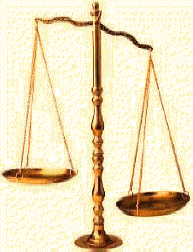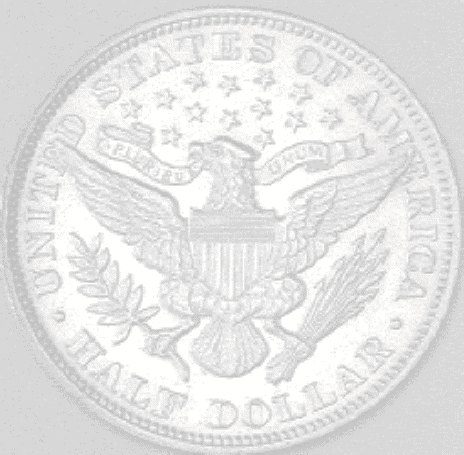
|
|
||
|
|
|
|
|
|
||

-8-
FOR BETTER OR WORSE:
Counterfeiting
Printing presses in the North eagerly printed Confederate "money." Some was sold as souvenirs, but more was printed to flood the South with "counterfeit" paper "money." "Thou shalt have a perfect and just weight, a perfect and just weight shalt thou have." This is the command of God, and history bears witness that when the Law of God is violated in regard to the tender of a country, counterfeiting will flourish. In an attempt to remedy the situation, the Confederacy pronounced the death penalty upon any Northerner who attempted to pass counterfeit "money;" and upon any officer commissioned by the Union who tolerated such notes to be passed under his command.
In April 1865, gold reached a parity of 1 to 100. It now required 100 "dollars" in Confederate currency to change hands in a transaction in which 1 "dollar" in gold could settle the business.
Corruption
In his Southern History of the War, Mr. E. A. Pollard summarized the conditions brought about by Confederate paper "money."
The evils of the expanded currency of the Confederacy were not only financial. They were also moral. The superabundance of paper money was the occasion of a wild speculation, which corrupted the patriotism of the country; introduced extravagance and licentiousness in private life; bestowed fortune on the most undeserving, and above all bred the most dangerous discontents in the army.
As long as there was a spirit of mutual sacrifice and mutual accommodation in the war, our soldiers were content and cheerful. But when they had to compare their condition --the hardships of the camp, the pittance of eleven dollars per month that could scarcely buy a pair of socks, the poverty of the dear ones left behind them --with the easy and riotous wealth of those who had kept out of the army merely to wring money out of the necessities and distress of the country, who in snug shops in Richmond made thousands of dollars a day, it is not to be wondered at that bitter conclusions should have been drawn from the contrast and that the soldier should have given his bosom to the bullets with less alacrity and zeal when he reflected that his martyrdom was to protect a large class of men grown rich on his necessities and that too with the compliance and countenance of the government he defended (White, 173-74).
"Thou shalt have a perfect and just weight, a perfect and just measure shalt thou have.”
The War Ends
The Confederate funds were seized in May 1865 at the same time President Jefferson Davis was captured. A total of 85,000 "dollars" in gold, 36,000 "dollars" in silver bullion, and 35,000 "dollars" in silver coin was seized along with 700,000 "dollars" in paper "money!"
___________________________________
BIBLIOGRAPHY
Coin Press: "The Richest Man in the World --In
Confederate Currency” by Ed Rochette. October, 1961.
Coin World: "The Confederate Cent --Second Restrike" by Robert
Bashlow. January 26, 1962.
Coin World: "Economic Role Significant in Civil War" by Timothy
Fellows. April 2, 1986, 80.
Meine, Franklin J.: Library of Universal Knowledge. Copyright
1949, Chicago.
Reinfeld, Fred: The Story of Civil War Money. Copyright, 1959 by
Sterling Publishing Company.
White, Horace: Money and Banking. Copyright 1895. Boston: Ginn
and Company.
